Description
Product categories:
#Metabolism
#Vessels (and indirectly heart)
#Silent Inflammation
Phospholipids from the soybean
for introduction into the cell membranes for membrane activation and cell rejuvenation
120 capsules per box = 86.7 g
Composition 2 capsules/day 4 capsules/day
Soybean extract 1200 mg 2400 mg
– thereof phosphatidylcholine 900 mg 1800 mg
– thereof lysophosphatidylcholine 52 mg 104 mg
Ingredients: Phosphatidylcholine from soy, hydroxypropylmethylcellulose (capsule shell and capsule band), ethanol, safflower oil, sunflower seed oil glycerides, soy fatty acids, ascorbyl palmitate, DL-alpha-tocopherol
Vegan product and free from palm and coconut oil
ATTENTION: The capsule is not completely filled for production reasons. A vegan capsule that can hold at least 450 mg PPC was only available in this size in Germany at the start of production. In order to avoid unnecessary fillers, the capsule was therefore not filled completely in your interest, but the volume not required was filled with inert nitrogen.
Consumption recommendation:
2x daily 2 capsules in the intensive phase
2x daily 1 capsule in the maintenance phase
Manufacturer: Lichtblick GmbH
The independent patient blog A Beautiful Health informs you about the different indications for polyenylphosphatidylcholine (PPC)
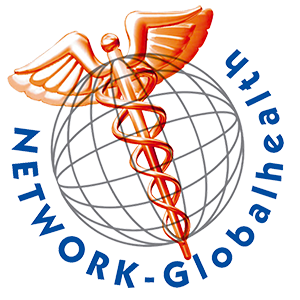
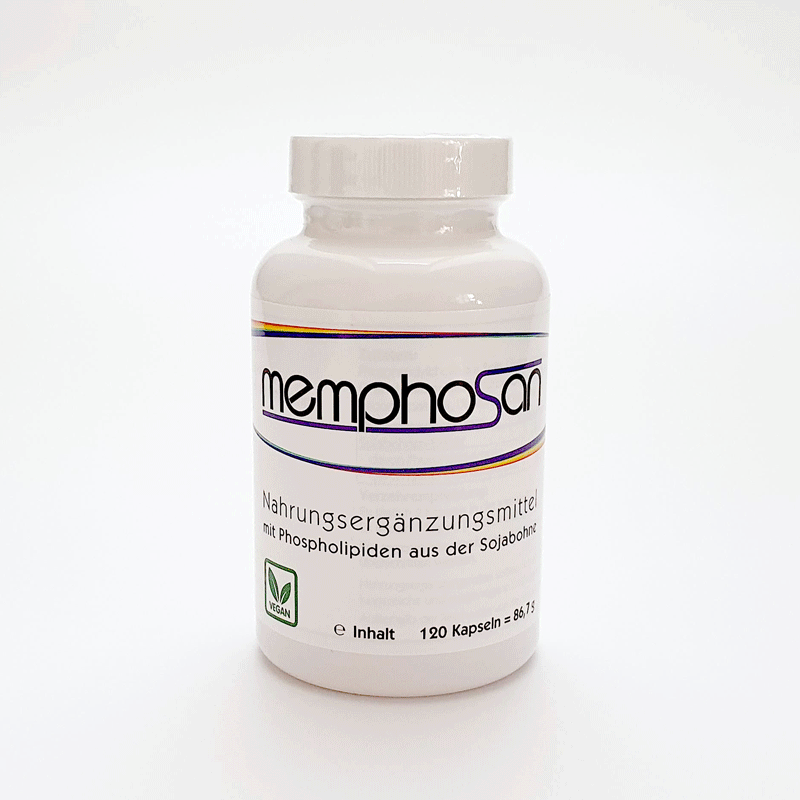
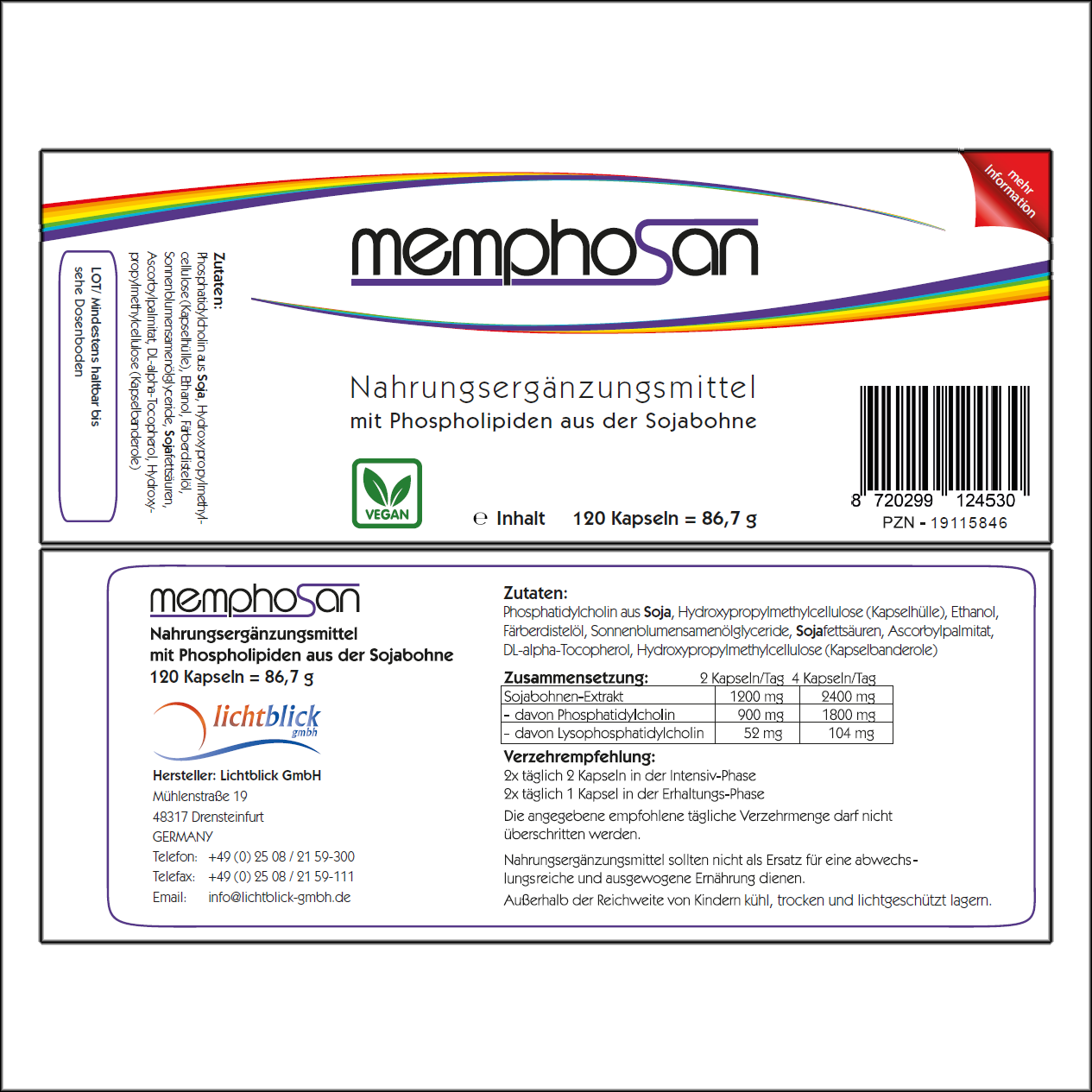
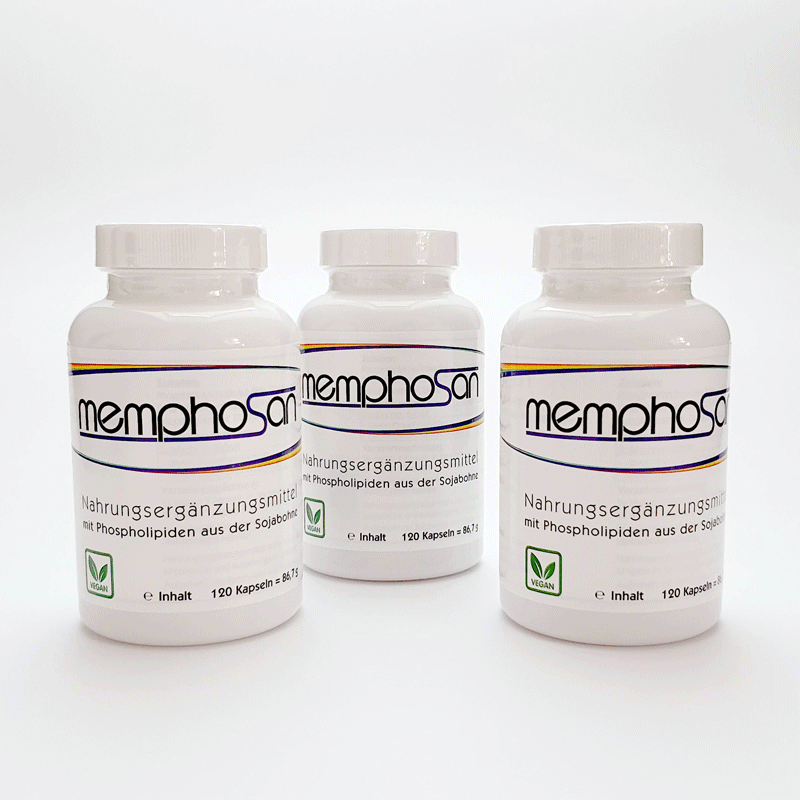
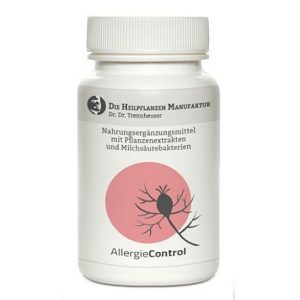
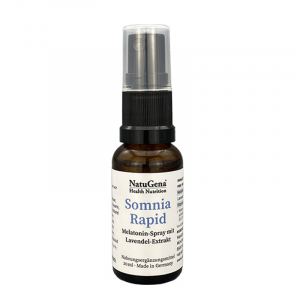
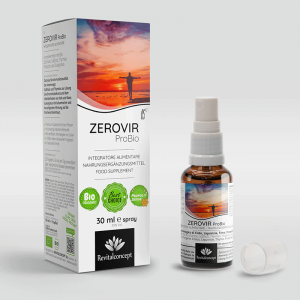
1 review for Memphosan – PPC for oral use
There are no reviews yet.